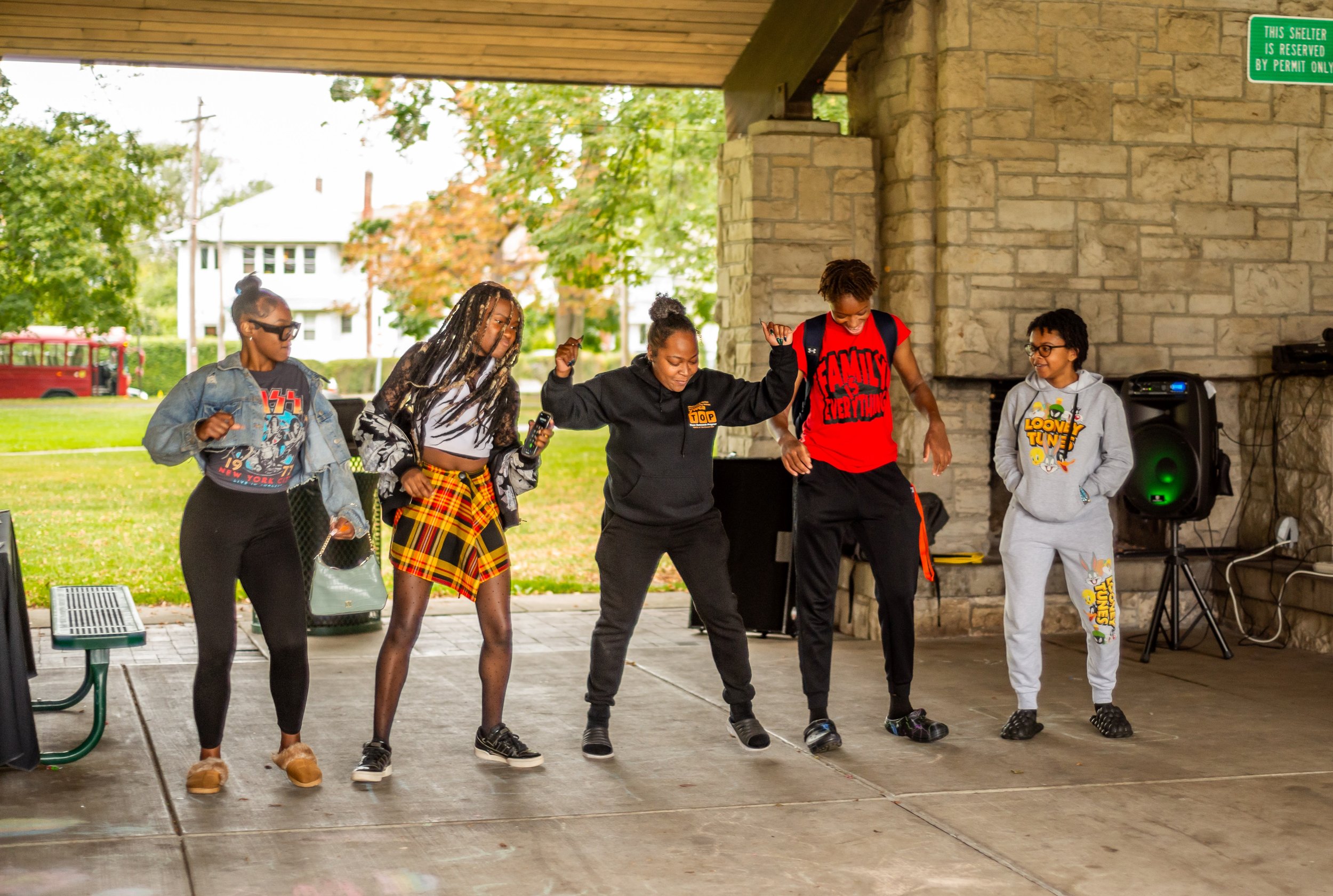YWCA Youth Programs
-
Draw the Line / Respect the Line
A National best practice curriculum available to all Toledo Public Schools 6th, 7th, and 8th grade students with a focus on respecting limits.
-
Reducing the Risk
An age-specific, comprehensive, sexual education curriculum presented in high school health classes focused on knowledge and interpersonal skills.
-
Teen Outreach Program
We offer TOP to teens as a way to build friendships and ties to the community, while encouraging healthy behaviors through group activities on a year-round basis. TOP is open to teens in Lima and Toledo and hosts events and activities including a Camping Trip, Lima Summer Enrichment Camp, Back to School Cookout, and so much more!
Find your school and sign-up today! -
AMEND Together
A primary prevention initiative dedicated to ending violence by engaging men + boys to become a part of the solution. This program is hosted through our Survivor Services Department.
Contact Jason A. Dixon to get involved:
jdixon@ywcanwo.org
Teen Outreach Program ↘
The Wyman Teen Outreach Program (TOP®) presented by the YWCA of Northwest Ohio promotes positive youth development through a combination of curriculum-guided group discussion and volunteer service activity. TOP is currently being offered as an after-school program in 6 high schools in the Toledo Public Schools as well as in schools in Allen County/Lima. TOP is an after-school program that offers weekly meetings where students can discuss teen issues, choose and participate in community service projects, and connect positively with peers continuing throughout the summer as well. Research has proven that service learning improves character, values, responsibility, and academics while providing a sense of connectedness to the school and community, and promotes social and emotional skills. YWCA TOP teens contribute over 3,000 service hours to the community annually.
Sign up for TOP at your school through our TOP 2024-2025 Registration forms:
Youth Development
Teaching youth life skills including leadership, emotional, and social skills to develop healthy behaviors.
The YWCA Youth Development Department empowers youth by providing national best-practice teen pregnancy prevention programs in Toledo Public Schools and Allen County. The YWCA’s teen pregnancy prevention efforts are making a significant difference. Teen birth rates in Lucas County have dropped nearly in half as part of a national trend that researchers attribute in large part to comprehensive reproductive health education programs such as those that the YWCA provides. Although the State of Ohio and Lucas County have seen a decline in teen birth rates, it remains a problem for area youth.
Teen pregnancy is associated with increased poverty, increased school dropout rates, low educational obtainment, and increased health issues. Through our programs, students learn resiliency, refusal skills, and goal setting which result in the ability to make more responsible and healthy choices. Our goal is to assist schools, parents, and the community in providing a unified voice in the promotion of healthy lifestyle education.
For further information about our programs, contact Tycie Alcorn at 419-241-3235 ext. 120 or email talcorn@ywcanwo.org. Youth Programs offered in Toledo and Lima, OH.
YWCA is Making a Difference
YWCA has provided Toledo Public Schools with developmentally appropriate sexuality education for middle and high school students since 2007. Lucas County Commissioners, Lucas County Job and Family Services, Lucas County Family Council, and Toledo Public Schools have adopted national best practice, comprehensive health education programs to address the critical need in Lucas County for reducing teen parenting. Lucas County has consistently been near the top of teen pregnancy rates among major urban counties during the last two decades.
In School Pregnancy Prevention ↘
The YWCA Youth Development Department brings Draw the Line/Respect the Line, a national best practice curriculum, to all Toledo Public Schools’ 6th, 7th, and 8th grade students. Reducing the Risk, an age-specific, comprehensive, reproductive health education curriculum is presented to all Toledo Public School high school health classes. Student and teacher comments, as well as an independent evaluation from Bowling Green State University, clearly demonstrate that young people make healthier choices in regards to their reproductive behaviors because of these valuable programs that teach our youth essential skills and knowledge for healthy development.
Draw the Line/Respect the Line is an evidence-based curriculum that promotes abstinence and protection by providing students in grades 6, 7, and 8 with the knowledge and skills to prevent HIV, other STD, and unplanned pregnancy. Using an interactive approach, the program shows students how to set personal limits and meet challenges to those limits. Lessons also include the importance of respecting others’ personal limits.
Reducing the Risk is an evidence-based curriculum designed to help high school students delay the initiation of intercourse or increase the use of protection against pregnancy and STI/HIV if they choose to have intercourse. The major focus is the development of attitudes and skills that will help teens prevent pregnancy and the transmission of STIs, including HIV. This research-proven approach addresses skills such as risk assessment, communication, decision-making, planning, refusal strategies and delay tactics. The greatest emphasis of Reducing the Risk is on teaching students the interpersonal or social skills they can use to abstain or protect themselves. Abstinence is presented as the safest, most effective and most common choice for high school students, but Reducing the Risk also recognizes that some students are sexually active. For this reason, students are given clear guidelines and rationales for using protection during intercourse. Young people do not find these messages contradictory, and lessons reviewing protection do not increase the likelihood that students will start having intercourse or intimate relations. Students learn they must consult with their parents and think through their values to decide what to do.







